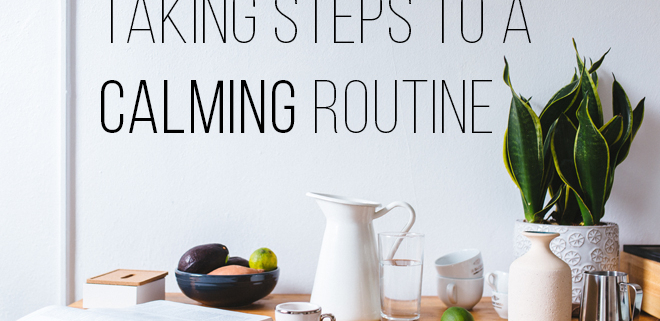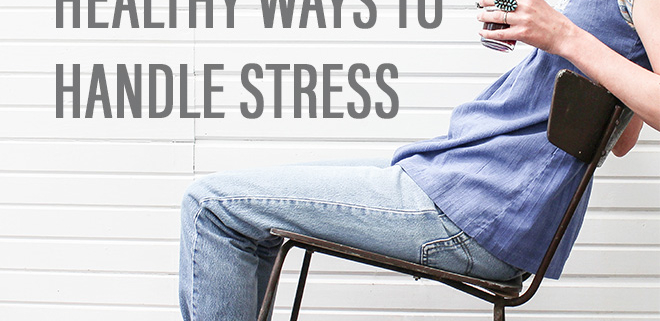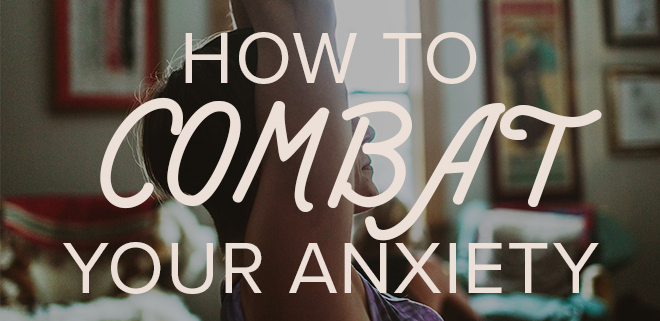Patients from all walks of life come through the doors of CCRH, and we get the extreme privilege of experiencing their varying personalities, hopes, fears, and knowledge. While the differences are always distinct, we have noticed that there is at least one factor that is common among the lot: stress.
Whether the stress is minor or extreme, it’s a feeling we see written on the faces of team members and patients alike. Last week we talked about Healthy Ways to Handle Your Stress, and one of our tips was creating a calming routine. The following tips can be incorporated into anyone’s routine, and may help relieve a stressful schedule.
Nourish Your Body
“Stress-eating” is a term that gets heard more and more these days, and is a sneaky pitfall when it comes to taking care of yourself. A recent study by food scientists at Cornell University has shown that, when experiencing a period of negative emotion, pleasurable foods become even more appealing than usual, and unappealing foods become exponentially more distasteful.
This information makes it even more important to adopt a healthy diet. By planning ahead and making nourishing foods easily accessible, you’ll be better prepared for those times when you’ve had a rough morning, and a box of doughnuts shows up in the hospitality room. The simple act of eating a satisfying, nutrient-packed breakfast can set the atmosphere of your whole day, removing the need to reach for an unhealthy snack.
Making an impulse-eating decision can often cause guilt or physical discomfort later on—which will only further contribute to your stress levels.
Go for a Walk
One of the best ways to ease your mind is to get moving. Exercise triggers the production of endorphins, which are the neurotransmitters in your brain associated with “feeling good.” By focusing your mind on the movement of your body, you’ll be able to give yourself a break from your worries, creating a small, meditative escape from stress. Walking, specifically, is an ideal form of stress relief, as it is more accessible to people of differing athletic abilities. In addition to endorphin production, regular exercise promotes better health and self-esteem, which can drastically decrease stress levels.
Any exercise is an effective way to cope with stress, but it seems to be especially so when it is taken outdoors. Being able to remove yourself from your typical environment and take a few moments to connect with the outside world can be a good way to hit the reset button.
Talk to Someone
Stress can be very overwhelming when faced alone. Finding a close friend, support group, or therapist to share your feelings and fears with can help put your stress in perspective. Whether it’s the very basic act of hearing your feelings out loud or the relief of discovering that you’re not alone, finding a person or group to talk to is a powerful way to bring about some emotional relief.
Find a Healthy Distraction
While analyzing your stress is important and helpful, it’s equally important to give your mind a break. When feelings of anxiety and burden become too overwhelming, a brief, pleasurable escape can allow your body and mind to relax.
In addition to exercise, there are many ways to do this. Finding a new book to read or carving out some time to listen to your favorite music can help release some more of those endorphins and better prepare you to tackle your stress later on.
Be careful, however, to avoid distractions that are harmful, such as drugs, alcohol, or stress-eating. These are deceptive escapes that ultimately result in more stress for you.
Just Breathe
A tried-and-true method of stress relief and relaxation is the practice of deep breathing. While causing extreme emotional strain, stress can also affect a person physically. Practicing deep breathing exercises can help reverse some of the effects that stress has on the body by relaxing your heartbeat, increasing oxygen to your brain, and even lowering your blood pressure. We encourage you to visit this link for a fantastic resource on deep breathing information and exercises.
Cross Things off Your List
While all of the above activities can help reduce your stress, sometimes the only way to find relief is to remove your stressors. Make a list of factors that you can change, control, or accomplish, such as necessary duties and overwhelming tasks that need to be finished. You’ll find your relief grow dramatically as you remove these stressful items from your list, allowing more room for the things that bring you happiness.
Those on the team here at CCRH are no strangers to stress. We want to provide a source of comfort and knowledge so that our patients and their families receive the best possible care. Adding just one of these tips to your everyday routine may seem like too small a task to make a difference, but being more aware of being stressed helps you make a step in the right direction.
Sources:
http://www.sciencedaily.com/releases/2015/07/150709093313.htm
http://www.healthywomen.org/content/article/reduce-stress-journaling





